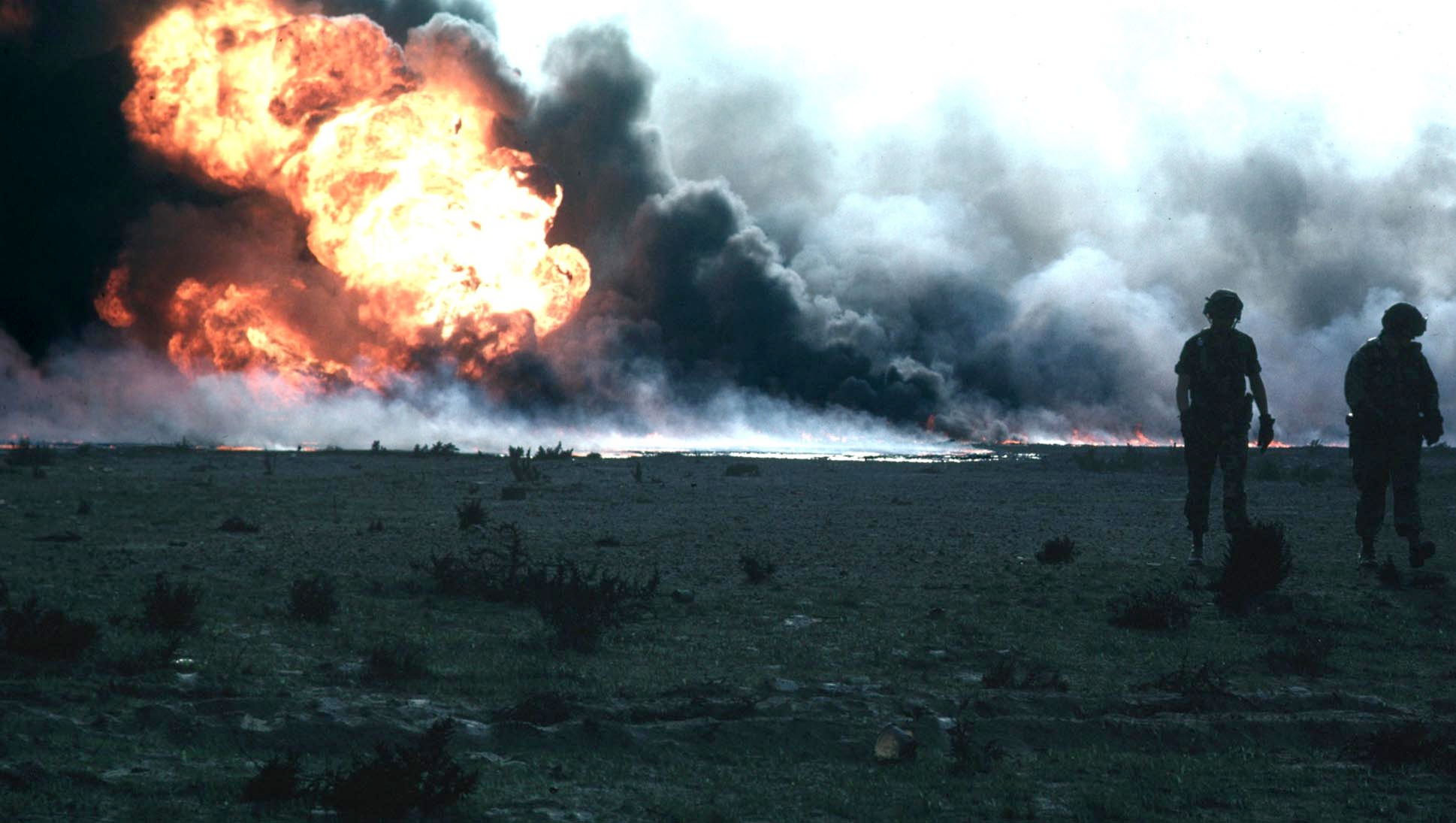
It's been 19 years since Saddam Hussein's armed forces invaded Kuwait, and five years since the US-led invasion that overthrew the dictator, but Kuwait is still demanding reparations from the Iraqi people.
According to Kuwaiti officials, Iraq still owes $25.5 billion in war reparations, in addition to some $16 billion in loans that funded Iraq's eight year war with Iran. At the very same time, Iraq is considering a $7 billion loan from the International Monetary Fund (IMF), as it struggles to pay for reconstruction, and oil revenues plunging from $7 billion in June 2008, to just over $2 billion in May.
Given the beleaguered state of Iraq, and all it has been through, it is high time that these reparations and debts are confined to the dustbin of history, finally closing the chapter on the Saddam Hussein era.
It is outrageous that a country that is among the richest in the world, with a per capita income of $40,800, is forcing Iraqis, with a per capita income of under $4,000, to pay for Saddam Hussein's actions.
Kuwait was, after all, no innocent bystander in the Iran-Iraq war – it helped fund the war and was happy to have Iraq do all the dirty work to contain and weaken the fledgling Islamic Republic – or a hapless victim of the 1990 invasion. Kuwait had goaded Iraq from the outset of the end of Gulf War I, allegedly violating OPEC agreements by increasing oil production pumped from the disputed Rumaila oilfield, which is partly in Kuwait but mostly in Iraq. This caused oil prices to tumble, and due to Kuwait's violation of Iraqi sovereignty, reduced Iraq's oil revenues by an estimated $4 billion a year. After 16 months of an Iraq-Kuwait standoff, and no resolution to a heightening dispute that was bleeding Iraq economically while it was trying to rebuild, Saddam Hussein made his fateful mistake and invaded his southern neighbor. The Iraqis have been paying economically ever since.
After the end of Gulf War II, the United Nations Compensation Commission (UNCC) was created to assess and payout claims, with Kuwait claiming $386 billion in damages, while individuals and businesses from a 100 countries also filed claims. Indeed, multinational corporations have received vast sums, not for war damage, but for “profit loss” and “lost potential earnings.” As of April, according to the UNCC website, Iraq has paid out $27.1 billion to the commission.
But as Kuwait reminded Baghdad, there is still a further $25.5 billion to pay. And then there are the other debts Hussein accrued with numerous nations around the world. However, following a lot of pressure from organizations such as Jubilee Iraq, many countries have waived Iraq's debts, most recently the United Arab Emirates writing off $7 billion.
Kuwait should follow suit. The 1990 invasion was a decision of a dictator, not the Iraqi people. Furthermore, history has numerous precedents of debts being written off that were made by an individual – the leader – not the country itself. And most famously, of course, reparations have been shown to have negative consequences, particularly if one recalls the outcome of the Versailles Treaty in 1919 that forced Germany to pay out billions, yet resulted in hyperinflation and acted as a catalyst for the rise of National Socialism. We all know where that led. But while such an outcome is exceedingly improbable in Iraq, paying out reparations means there is less money for reconstruction. It is also disingenuous on Kuwait's part to divert such funds away from Iraq, as an unstable and poor neighbor is not to Kuwait's benefit, or anyone else for that matter.
Currently, Iraq has received $125 billion in reconstruction aid, according to the Special Inspector General for Iraq Reconstruction, the successor to the Coalition Provisional Authority. Tens of billions of dollars more are needed. Oil revenues were expected to help in this regard, but with low oil prices and billions needed to upgrade energy infrastructure, Iraq is still years away from being able to allocate oil revenues to pay off debts when it needs money for reconstruction. Either debts are frozen until Iraq has ample revenues, or written off completely by Kuwait. This is what Iraq has asked for.
Equally, the whole reparations deal reeks. There have been innumerable wars and invasions since World War II and the victorious Allies rightly realized that reparations from Germany and Japan were a bad idea. Few, if any countries, have received compensation since for being on the receiving end of aggression. The United States has certainly never paid out reparations for the numerous wars and conflicts it has been involved in, while Israel has never paid a cent for the damage it has caused to the Arab economies, left to foot the bill from decades of Israeli aggression.
While Kuwait has not acted militarily, the Gulf state's demands are not healthy for Iraq, for its border with its neighbor, or for the region. Kuwait's requests should end and allow a more prosperous Iraq to develop.
PAUL COCHRANE is the Middle East correspondent for International News Services
Photo credit: Burning oil fields during Operation Desert Storm, Jonas Jordan, US Army Corps of Engineers
No comments:
Post a Comment